#indian atheists
Text
Famous Atheists
Akkineni Nageswara Rao

Indian actor, producer, Padmavibhushan award recipient
"Nageswara Rao, my father was a humble human being: Son Nagarjuna". Daily News and Analysis. 29 January 2014
#atheism#religion#did you know#indian atheists#indian actor#famous people#famous actors#famous atheists
4 notes
·
View notes
Text

#orthodox church#orthodox christianity#religion#anti religion#dogma#atheist#israel#israhell#gaza#palestine#no pride in genocide#no pride in apartheid#ausgov#politas#auspol#tasgov#taspol#australia#fuck neoliberals#neoliberal capitalism#anthony albanese#albanese government#usa news#usa is a terrorist state#usa politics#usa#american indian#american#america#class war
12 notes
·
View notes
Text
I need a hindutvawadi repellent so bad
#how are there so many#if i see one more guy going 'omg sanatan dharm ram mandir yay 💦💦#im gonna commit crimes#hindutva#anti hindutva#anti bjp#atheist#indian politics#desiblr
9 notes
·
View notes
Note
Do you know where I could find some accessible and not overly ..bowlderdized? Colonialized?? Basically without the "they were just close friends"-ing that they do to most of the acessable summaries of other cultures? Or anything a layman could read about the ramayana that won't leave them with a horrifically racist aftertaste?
There are a lot of versions of the myth, so I can't promise any particular version, especially as translated into English, isn't "altered for the audience" so to speak. Overall, I think it's more helpful to look for summaries that are most accessible to you with awareness of their biases, than try to look for something free of biases.
I got a lot of my initial introduction to Hindu mythologies through Amar Chitra comics - a very popular comics producer in India focused on Indian history and Hindu mythology. That said, the comics are largely aimed at children, and the company/comics line is a bit on the nationalistic side. They have a U.S. distributor, and of course 🏴☠️ knows no borders.
There's also the 1992 anime Ramayana: The Legend of Prince Rama, available for free on YouTube. It's also aimed at kids, but does a good job of covering all the major beats of the story. If you go in with the awareness that this was a somewhat politicized project (it was co-produced between Japan and India, and at a time of political controversy related to Rama in India), then it's also a pretty good introduction to the myth.
(Edit: rewatched the movie for the first time in like 25 years and I underestimated how much I forgot. 😅😓 I should clarify that it's good for the action "plot" of the myth, but the surrounding story and context, not so much. So it's a good intro to the overall beats of the legend and important symbols, imagery, etc., but the underlying philosophy, not so much. I'd compare it to how Disney movie can provide a decent intro to the imagery and main characters and plot beats of a story like Cinderella or Hercules, but the details and context are flattened or removed to make it palatable to child and international audiences.)
#nyxie is hindu#hypthenated atheist#hyphenated atheism#nyxie is indian#hyphenated american#india#south asia#religion#culture#anime#nyxie answers
4 notes
·
View notes
Text










#shareitifyouagree#atheist#love#beard#childfree#bhabhi#priya anjali rai#illshowumine4free#babes vids & odd news#indian babes
2 notes
·
View notes
Text
has anyone noticed the religious side of tumblr getting increasingly weird and regressive since the porn ban? i know a lot of us had an eye on the evangelical xtian explosion here, but i now see a pretty uniform resurgence of the sentiment that you can't vocally hate/disrespect/even disbelieve a religion for any reason, sometimes extending to the point of thoughtcrime-ifying privately held convictions, even among leftists
#maybe i'm just following the wrong people but...#idk. some wank about sexualizing nuns on twitter reminded me about how it would've gone over way better on tumblr#bc things here have gone very strange in some places#i notice it most often riding on the coattails of cultural xtianity discourse which is its own can of worms#not bc cultural xtianity isn't real but bc it's used as a gotcha against virtually anyone with a take perceived as antireligious#including things as milquetoast as ''secularism is a prerequisite for a functioning democracy'' which is just a fact#(the one who said that was an indian atheist talking about the hindutva movement aiming to expel non-hindus-but-mostly-muslims from india)#(but swaths of jumblr immediately assumed it was about israel and started quoting martin luther at his most antisemitic at them)#(nobody apologized when corrected. this was years before oct 7)
2 notes
·
View notes
Text
"nafrat ki bazaar mein mohabbat ki dukaan" IS such a nice slogan btw
3 notes
·
View notes
Text
Yeah okay I need to move out. If I have to deal with my mum any longer I'm going to actually completely lose it (moreso than I already have/am)
(admittedly while moving out would solve a lot of the problems currently plaguing me it'd also bring its own whole host of issues — some of which miiight be caused by my current issues and thus would be solved/rendered moot by moving out but just as many which likely wouldn't)
#she just walked into my room and told me that I need to get into/learn ai art because#''in three years it'll be the only way to get an art-related job''#(that's me condensing the argument into one line but that was the core point of it)#(this in addition to her thinking elon musk is a real life supergenius and not accepting any criticism I make of him#and her general transphobia homophobia and racism#and her regular attempts to make me discuss with her her conspiracy beliefs about aliens building the pyramids#and about some random indian kid predicting the future and also some set of cards that can be used to predict the future#(not tarot cards. it's like a set of cards she claims predicted 9/11 and the war in ukraine and things)#and her evolution denialism/creationism (we're atheists)#oh and that she regularly gets weird about whenever I talk to/interact with a/any girl(s)#(I'm aroace and even if I wasn't I am not the sort of person who should be in any kind of relationship anyway)#that's not comprehensive but it gets the point across)#(My dad also sucks but he spends most of the time outside the house or just watching tv and is slightly less. everything about his idiocy#so he's not near as constant a source of emotional stress and frustration)
2 notes
·
View notes
Text
even if you believe zero percent of the bible it’s still a fascinating historical text & significantly influenced culture and literature for the past 2000 years. theres still value in studying it
#this goes for other religious texts as well btw#the bible has been the most significant influence on western culture but other religious texts & oral stories have influenced#arabic & indian & east asian & irish &. well you get the idea#even if you're an atheist there are still soooooo many reasons to study other religions & religious texts#.txt
6 notes
·
View notes
Text
No for real would love to know where that little bit of Filipino comes from. My dad's on Ancestry but Ancestry likes to "smooth out" (eliminate) smaller ethnicity percentages, especially with recent updates. I don't "count" as .4% Filipino over there, and site updates took away my bits of Nigerian and West Asian (the last of which, while small, is still more than just trace amounts), all of which are still available on my 23AndMe. But dad doesn't want to do another DNA test and mom doesn't want to do a test at all so I'm over here staring at the things I wasn't expecting my European ass to have going "WHO WERE YOU I WOULD LOVE TO KNOW" with no direction to start looking
#I mean the obvious answer is some form of colonization on part of the European ancestors#the Nigerian is weird bc it's potentially far back enough to have preceded chattel slavery in the U.S so I'm hoping it was a happier story#there than usual#my French-Italian side remains a mystery to me for lack of records. I'm guessing the WANA came thru Italy#the fact that I'm like .3% Indian subcontinent on top of larger WANA and Italian makes me wonder about potential (small) Roma ancestry#but that's pure speculation#and the Filipino is a total wildcard I initially dismissed until I found a half Filipino 4th cousin and other 4th cousins who also had root#none of whom know who the common ancestor is sadly#anyway it makes me sad I'm an atheist bc I know I will never have an answer even after I rest eternal#but I would love to know who all these parts of my DNA came from#the .4% Filipino means roughly 8 generations since the last full Filipino ancestor which was like two hundred years ago#and that's hundreds of great-x-grandparents to go thru#sigh#anyway just ignore me I'm#rambling about ancestry again
0 notes
Text
#afterlife#atheistic views#Charvaka philosophy#criticism#god#Indian philosophy#Karma#Lokayata#materialistic philosophy#modern culture.#natural laws#Nyaya#perception#Pleasure#reincarnation#Samkhya#self-denial#skepticism#traditional beliefs#Vaisheshika#your spiritual journey
0 notes
Text
Deities in Hinduism 🛕
Hinduism is the largest religion in the Indian subcontinent, and the third largest religion in the world. Hinduism has been called the "oldest religion" in the world, and many practitioners refer to Hinduism as "the eternal law" (Sanātana Dharma). The faith is described by some to be monotheistic, where all deities are believed to be forms of Brahman, the Ultimate Reality, as popularised by the Advaita philosophy.
"A Hindu can choose to be polytheistic, pantheistic, monotheistic, monistic, even agnostic, atheistic, or humanist."
1. Lord Vishnu
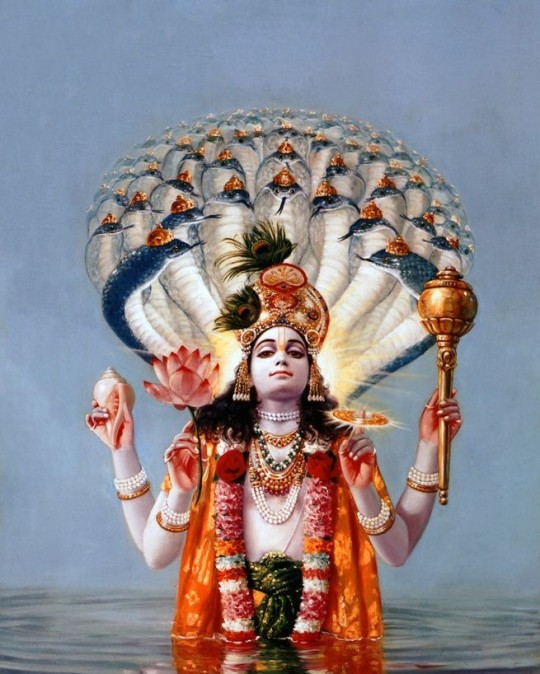
Vishnu is the god of Preservation, the great maintainer who often appears in various incarnations (avatara) to provide salvation for humanity. Some of his best-known avatars, who are tremendously popular and beloved throughout Hindu India, are the gods Krishna and Rama.
2. Lord Shiva
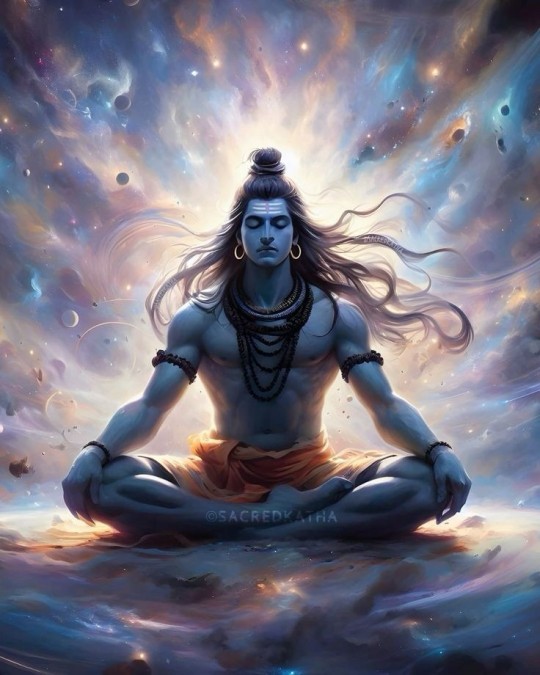
Shiva holds one of the most prominent roles in Hinduism as the god of destruction. He is one of the three most important gods, alongside Brahma (the creator) and Vishnu (the preserver). The sect of Shaivism holds that Shiva is the Supreme Being which all other gods are aspects of.
3. Maa Kali
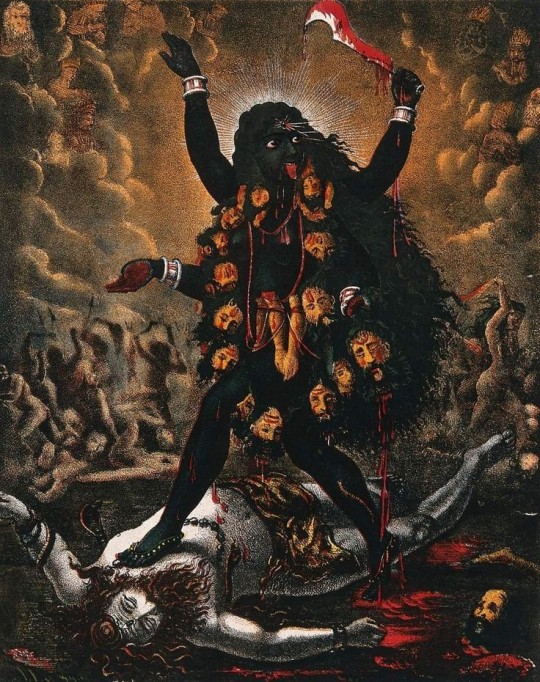
Kali is the Hindu goddess of death and rebirth, she expresses the dual nature of the destruction that must come before new beginnings, and of the strength of the female power which can sometimes do what the man cannot. She is also the goddess of time.
4. Maa Durga
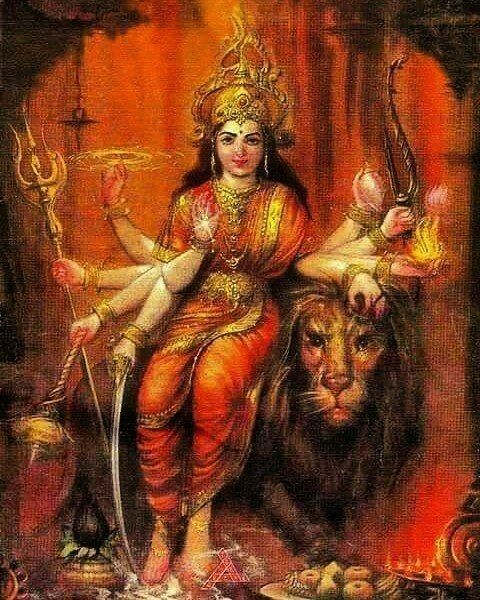
Durga, goddess of Shakti - the divine positive feminine energy and focus of festival celebrations. This very elegant bronze figure of Devi (goddess) Durga - is an attractive and prominent figure and a principal deity in Hinduism.
5. Lord Ganesha
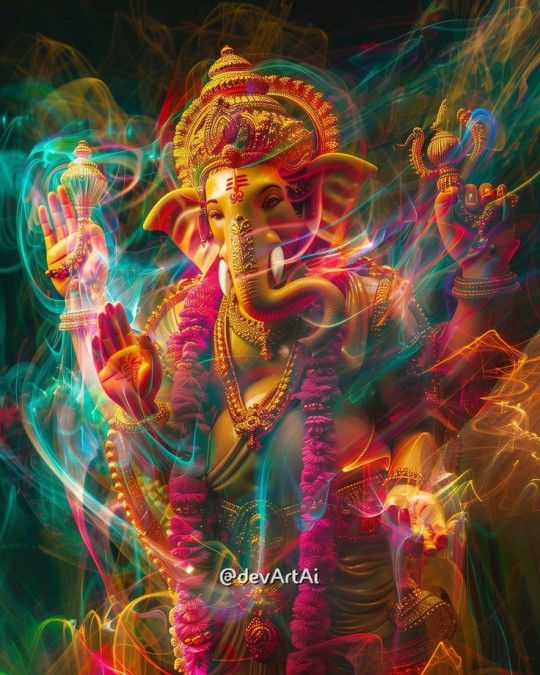
He is widely revered, more specifically, as the remover of obstacles and bringer of good luck; the patron of arts and sciences; and the deva of intellect and wisdom. As the god of beginnings, he is honoured at the start of rites and ceremonies
6. Maa Saraswati
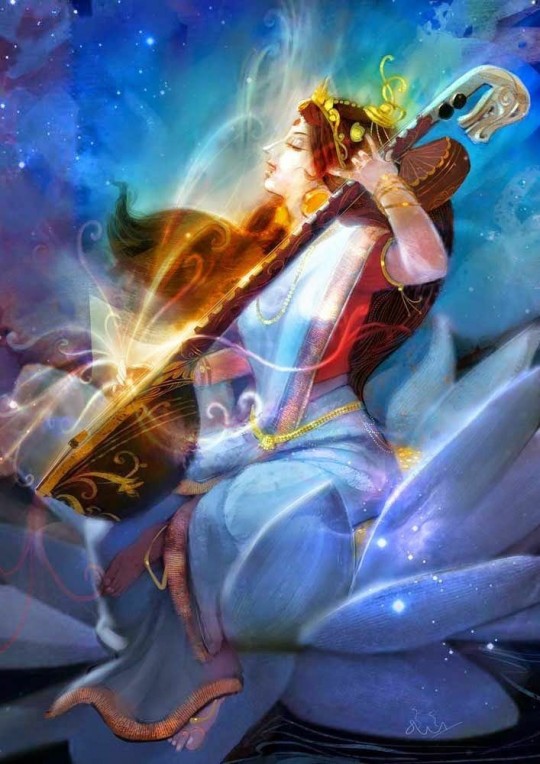
Saraswati is the Hindu goddess of knowledge. She is associated with wisdom, music, art, and learning. She is one of the three main goddesses of Hinduism, along with Lakshmi and Parvati. Together the three goddesses are called the Tridevi.
7. Maa Lakshmi
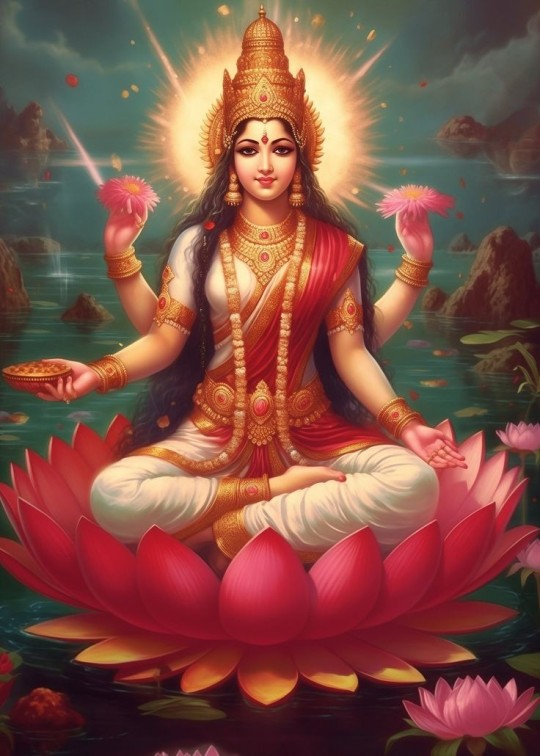
Lakshmi is the Hindu goddess of wealth, good fortune, happiness, youth, and beauty. She is the wife of Vishnu, the god that sustains the universe; he makes sure the universe stays together while Shiva, the destroyer, rips it apart.
#tarot reading#tarot spread#tarot cards#tarot blog#tarot#pick a card#pick a pile#tarot and astrology#tarot community#tarotblr#tarot asks#tantra#hinduism#hindublr#sanatandharma#tarot justice#tarot journal#the divine masculine#tarot divination#spiritual disciplines#future spouse#kashmiri hindus#channeled message#tarot blr#tarot beginner#future spouse reading#indian goddess
199 notes
·
View notes
Text
Conservatives Push to Put Chaplains in Public Schools (who needs books, supplies, healthy lunches, or a school nurse?)
#conservatives#conservativism#high school#school#college#university#primary school#grade school#chaplains#public school#dogma#religion#science#philosophy#anti religion#atheist#atheism#usa news#usa#united states#unitedstateofamerica#american indian#american#america#spirituality#religion is a mental illness#religion is bullshit#religion is a scam#religion is stupid#religion is poison
1 note
·
View note
Text
Sci-fi show: There's no religion in the future. Mankind has evolved beyond such silly superstitions.
Me: But that woman's in hijab. And that woman has a bindi!
Sci-fi show: Yes, in this utopian future, mankind is tolerant and inclusive of all diversity.
Me: ...so Arabs and Indians are less evolved than whites, who are smart enough to have become atheists?
Sci-fi show:

703 notes
·
View notes
Text
i've been reading about the case of asia bibi and it got me thinking how pakistani christians' oppression is also rooted in casteism in addition to religious discrimination.
christians make up roughly 1.6% of pakistan's population. 90% of christians are also dalit. despite having a small population, pakistani christians make up 80% of sanitation workers. this is rooted in the belief that lower castes such as dalits should perform "unclean" jobs.
these sanitation workers are paid meagre wages with no benefits. on top of that they also face abuse from people who look down on them as "unclean". which is again, rooted in casteist beliefs that dalits are "polluted". like the case of shafique masih, who was cast out by even his own relatives for his job as a sanitation worker. he's only one of the many sanitation workers who face discrimination on the basis of both religion and caste in pakistan.
the case of asia bibi, one of the most famous blasphemy cases in pakistan, started after she stopped to take a drink of water with a cup she found lying near the well. this angered a neighbour of hers who told her that it was "forbidden" for christians and muslims to drink from the same cup and that by touching the cup, she had made it "unclean".
this echoes the notion of untouchability, that lower castes and upper castes mustn't use the same utensils lest those utensils become "unclean" or "polluted". i'm going to quote the below article which summarizes perfectly the casteism aspect of the asia bibi case
In fact, even the case of Asia Bibi – the Christian woman who was accused of blasphemy, sentenced to death and then acquitted by the Supreme Court on October 31, resulting in protests across Pakistan – has at its essence the continuation of caste hierarchy. In Punjab, Christianity is frequently referred to as a caste as well as a religion, and many Muslims refuse to share utensils with Christians. It was Asia Bibi’s use of a utensil that led to an altercation with her Muslim neighbours, which eventually resulted in the alleged blasphemy. While the case led to a global discussion about Pakistan’s blasphemy laws, the caste hierarchy and discrimination based on it received no attention.
there is a misconception that casteism is purely a hindu concept and other religions are free of it. however casteism is deep rooted in both indian and pakistani societies, regardless of religion. whether it be hindu, muslim, christian, or even atheist, the caste system is alive and manifests in violent ways, infused with these religions. for example, upper caste pakistani muslims argue that lower caste hindu and christian minorities eat "haram" food to justify their oppression of them
so denying the existence of casteism in modern times or painting it as a hindu only aspect does a disservice to lower caste these lower caste minorities in pakistan oppressed by upper caste muslims, both on the basis of religion and caste.
114 notes
·
View notes
Text
The fact that the founder of hindutva as a modern political movt was an avowed atheist and that there are still indian atheists to this day to claim that mantle should probably temper the inclination to ascribe hindu nationalist violence exclusively to fantastical beliefs about the supernatural. "I dont really go in for the faith and metaphysics stuff, just the traditions and cultural significance [a phrase here meaning: ethnic/sectarian hostilities and inherited social prejudices]" turns out to be a coherent and relatively common attitude towards religion
298 notes
·
View notes